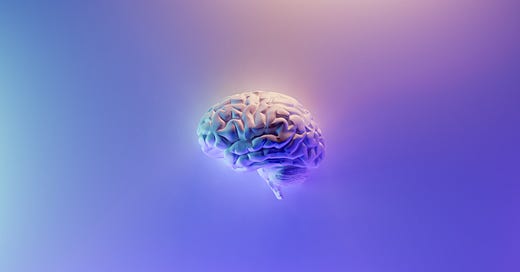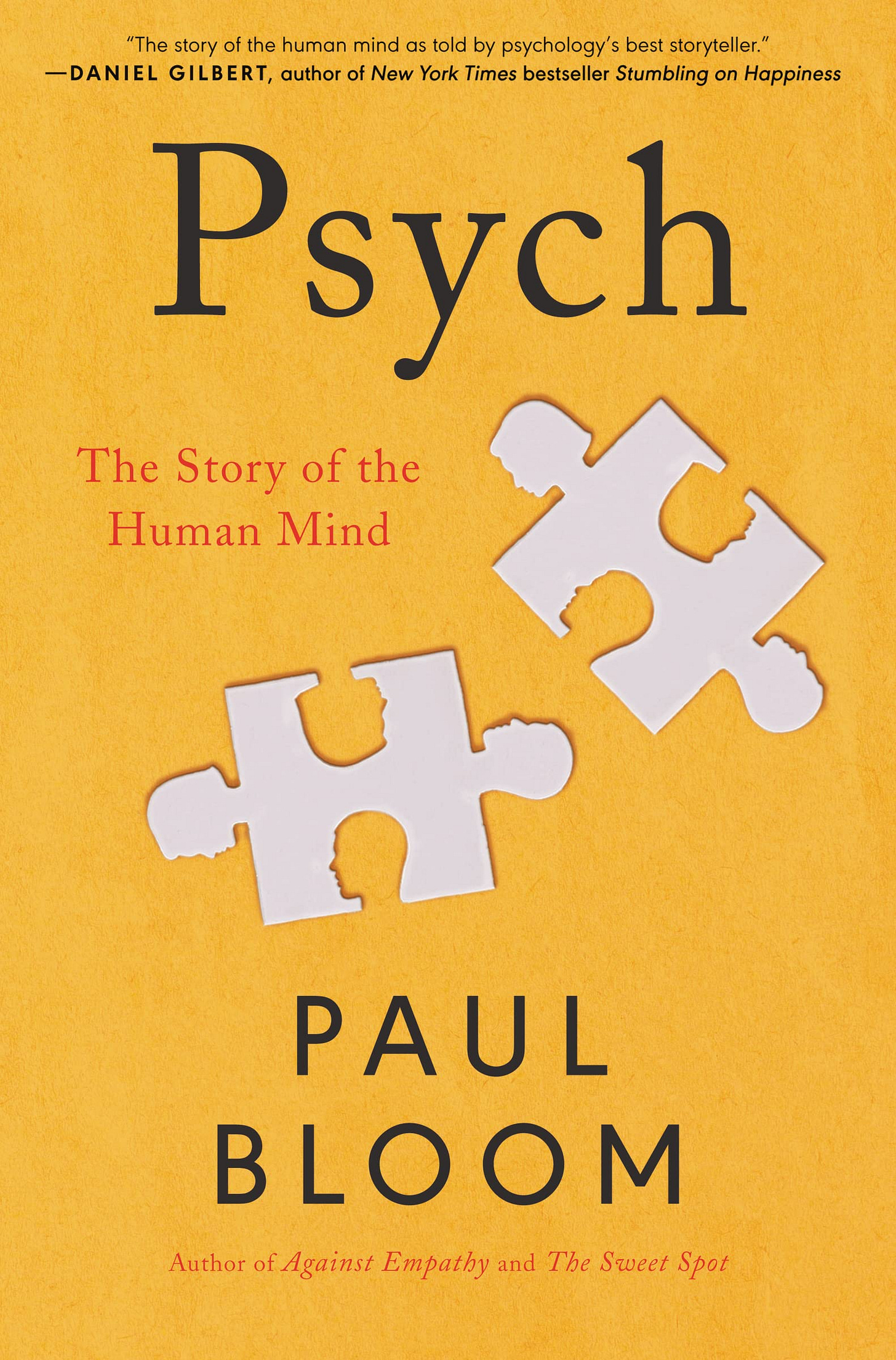Introduction to psychology is one of the most popular courses on college campuses today. And I’ve taught many sections of the course. But one thing that I hate about the course is that nearly all of them are the same. They all use an indistinguishable textbook that a committee has decided you must use, with standardized exams that you must administer. With the same examples, unreplicated findings, and snooze-fest approaches.
And that’s a shame because intro to psych should be one of the best classes to teach and take.
Luckily, some professors have the academic freedom they need to make introduction to psychology an amazing course. Paul Bloom is one of those people. And in his latest book, Psych: The Story of the Human Mind, he showcases just how interesting this standard course can be by creating the popular book version of his own intro to psych course.
As a trained psychologist with a PhD who has taught intro to psychology for years, I honestly wasn’t sure how much I might learn from this Psych. But Bloom – as per usual if you’re familiar with his books – always manages to make the banal extraordinarily interesting and insightful.
Psych is organized into five major sections: foundations, thinking, appetites, relations, and differences. He dives right into the big questions first, tackling consciousness in chapter two. I was most impressed with the foundations chapters – typically my least favorite section to teach in this course given that I never got a good learning experience in the topic over a decade of studying psychology. Bloom uses the questions of consciousness to frame opposing work by Freud (who was all about the unconscious) and Skinner (who was all about insisting ‘the mind’ was irrelevant). The result is an insightful, yet concise, presentation of the major debates over the last century about what the mind is.
The thinking section, and particularly the chapter on Piaget, gave me a new appreciation for the early work on what cognition is and how it develops across the lifespan. I continue to be increasingly fascinated by development the more I read about psychology and cognition. Development, and Bloom rightly points out, “doesn’t get the same respect as other areas of psychology.” This is unfortunate as the experiments in this domain are so clever and interesting! No boring self-report surveys here. And the findings of these experiments force you to really think about the mind in ways that other areas of psychology do not.
Bloom injects some evolutionary thinking throughout as well, explaining the Wason Selection Task and the pioneering work of Leda Cosmides and John Tooby in understanding why the task is easier when people are the subjects, rather than only numbers. He also tackles popular topics like the Implicit Association Task (IAT) with the provocative chapter title, “Is Everyone a Little Bit Racist?”
This is an absolute must-read book. Bloom managed to write a book that pleases every knowledge level. Psych is written at a high level such that a complete psychology novice would love this book, yet also is masterfully written in a manner that psychology PhDs will thoroughly enjoy the book too– and even learn a bit from it! My experience was that this book highlights just how big psychology is with regard to breadth and depth. I wish I was still teaching because I would enthusiastically use this book as the primary text for my course.
Published: February 2023
Publisher: Ecco
Format: Advanced copy (courtesy of Paul)
Listen to Paul discuss Psych on
If you think this sounds interesting, bookmark these other great reads:
The Idea of the Brain: The Past and Future of Neuroscience by Matthew Cobb (2020)
The Blank Slate: The Modern Denial of Human Nature by Steven Pinker (2002)
You may also like:
This post contains affiliate links, allowing me to earn a small commission when you purchase books from the link provided. There is no cost to you, and this will allow me to keep this newsletter free and open to all. Happy reading!









Thank you for this! Currently reading Against Empathy and loving it. I love Bloom's style and everything great about him comes through in his writing--I always appreciate it when authors can manage that.
I was bummed I missed his intro course when he was offering it online during lockdowns, so it's great to know I can now at least get it in book form!
Recently received my copy of this (yay!)and have just started digging in.
In the first chapter "Brain Makes Thought" Prof Bloom makes a strong case for brain localisation of certain functions. However, after reading Prof Lisa Feldman-Barrett's most recent book, I was under the impression that the field was moving away from this framework because better designed studies showed that the whole brain is active in all sorts of functions that were previously alleged to be mostly localised.
There was even recent debate/disagreement on twitter after Lisa posted a thread about a recent paper she co-authored on this issue.
I know debate and disagreement are part of how science improves and moves forward but as a layman, I am unsure where the consensus currently lies.
What do you make of the whole issue?